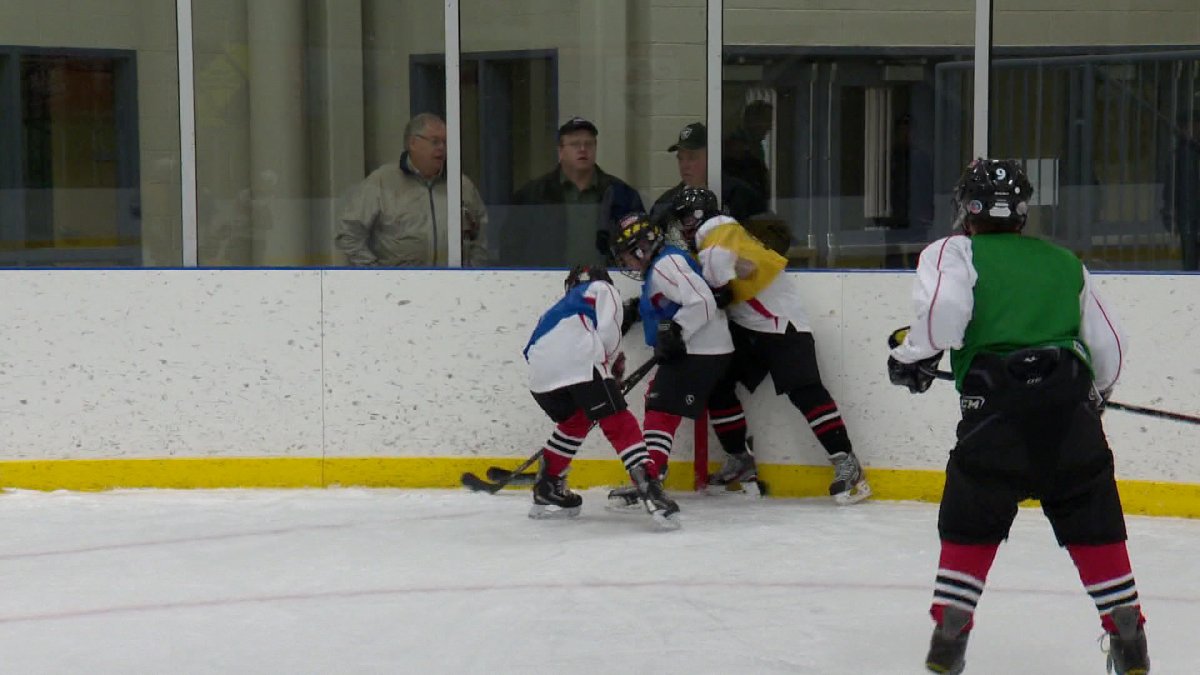Researchers at the University of Calgary released a new study that showed a drastic decline in the number of concussions following a ban on body checking.

Hockey Canada decided to put a ban on the move for 11- and 12-year-old players in 2013.
Those that conducted the study followed players before and after the ban was put in place.
The study showed that there was a 64 per cent drop in the number of concussions and a 50 per cent decline in the number of overall injuries.
Assistant Professor Kathryn Schneider with the Sport Injury Prevention Research Centre said the numbers in Alberta are staggering.
“So what that actually translates to is 581 less concussions and 772 less injuries,” she explained. “And that’s in Alberta alone.”
Across the country, it meant 4,800 fewer concussions in one year.
“We see such a huge disparity in size of players in this age group,” Kinesiology professor Carolyn Emery said.
“So that’s a pretty huge public health impact,” she added. Emery chairs the Sport Injury Prevention Research Centre at the university and says researchers followed players before and after the
policy change. “In terms of growth and development, these are developing kids with developing brains and they’re trying to really learn many, many skills within the game of ice hockey.”
Pee Wee Hockey coach Mike Leeder said he agreed with the ban and believed it could go even further.
“In my opinion it would be at the Bantam elite levels, is where checking should be,” he said. “I would like to see it removed from lower levels of Bantam as well.”
Natalie Gross was at Father David Bauer arena watching her son play Saturday afternoon.
Gross said she believed if players were coached on correctly checking and referees were paying close attention, that body checking would help Pee Wee players prepare for the Bantam level, where body checking is allowed.
“You start maybe body checking at Pee Wee 3 and if you’re below Pee Wee 3 maybe not do it. Teaching them the proper way to body check and receive a check at Pee Wee I think could be better for Bantam.”
Schneider said that the research is one of a few studies that’s being conducted with Hockey Canada that looks into injury in the sport.
The research team at the university will be presenting the study at an International Olympic Committee injury prevention conference in Monaco.
with files from the Canadian Press


Comments